Ours may be the only society ever with more rapes of males than females.

The insanity is clear from Johann Hari’s powerful 2015 book, Chasing the Scream. One of those books I had to put down at times, to hold my head in my hands.
Its villain is Harry Anslinger, head of the Federal Bureau of Narcotics from 1930 to 1962. Building his bureaucratic fiefdom required manufacturing a problem for it to combat. Drugs weren’t much of a problem until he came along. Most were obtainable legally and cheaply at the corner pharmacy, and were widely used, mostly in moderation, with little harm. The 1914 Harrison Act had outlawed narcotics, but with a big loophole: doctors could still prescribe them. But in 1931 Anslinger slammed that loophole shut by simply ignoring it and prosecuting 20,000 doctors. That handed criminals sole control of the drugs trade. Which of course made it a big problem.
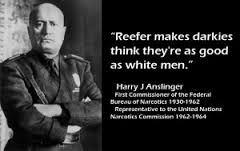
Hari goes inside drug gangs to understand what’s happening.
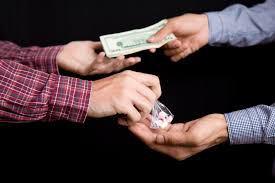
This puts the violence on a one-way upward ratchet. When one gang takes it to a new level, the rest must follow suit, and it becomes the norm. At least in America it’s somewhat contained by a strong rule-of-law culture. Mexico lacks that, its drug gangs control police forces and governments through bribery and terror, and so run unchecked. In a recent five year span, they murdered 60,000 — often in ways you don’t want to know.
The criminality and violence are multiplied because when gangsters monopolize the supply of drugs, their inflated prices drive users to crime too, to finance their habits.
Prison subjects victims to yet more violence (like rape), as Hari sickeningly illustrates. We’re so fixated on punishment we seem to forget most inmates will be released at some point, back into society. But having exposed them to hardened criminals inside doesn’t make them nicer people. And a prison record makes them largely unemployable. Thus our prisons are factories for human, economic, and social destruction. Black communities in particular are devastated. And children of prisoners are far likelier to get in trouble themselves. This is insane.
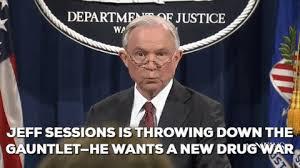
We’re told the harm of drugs justifies such extreme measures: the many billions spent, police resources consumed, millions jailed, lives ruined. Yet it’s all for nought, because it doesn’t curtail drug use at all.
It has been widespread in every society because it’s pleasurable.* Alcohol and tobacco are the commonest, paradoxically accepted and legal despite their great harms.
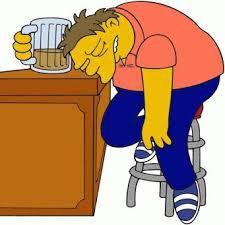
Medicines like buprenorphine have been proven effective in treating addiction, enabling users to lead normal lives while eventually weaning them off addiction. Yet most addicts get punishment instead of treatment. One reason is because prescriptions for medicines to treat addiction are, perversely, even more restrictively regulated than those for addiction-inducing opioids!
The common theory of addiction is that drugs rewire the brain to now require them. Yet most people using opiates for pain actually don’t get addicted. Some do. Why? Hari finds it’s because the brain was already rewired, by traumatic experience, mostly in childhood. I recalled J. D. Vance’s book Hillbilly Elegy, showing how a messed up childhood primes one for later substance abuse. It creates lasting emotional lesions, and a craving for something to palliate the hurt.**
There’s often an impaired ability to relate to and bond with others, a psychological hole which some fill with drugs. Hari quotes one user: “Addiction is a disease of loneliness.”
That addiction is more psychological and behavioral than chemical is proven by the fact that only 18% of those using nicotine patches — which provide 100% of the chemical — quit smoking. It was also proven by an unintended experiment where, for a while, Vancouver cops actually succeeded in keeping all heroin out. Drug dealers started selling fake heroin. Zero percent pure. And what was the effect on users? Zero. They behaved exactly as before. (Another stunning confirmation of the placebo effect.)
Punishing addiction only compounds people’s misfortune. Most use drugs because they’re already in psychological pain. And we act as though more pain is the remedy.

And why do so many move on to heroin? Because it’s cheaper and easier to get. Hari explains an “iron law” of prohibition. Before alcohol prohibition, Americans drank mostly beer. After, it was 90% hard liquor. Because beer was bulky to transport, hence riskier; more inebriation (and profit) could be moved in the form of whiskey. Thusly does prohibition drive the market toward products with greater potency.
Many worry that legalizing drugs would increase usage. The evidence is actually mixed; but in at least one way legalization reduces usage. Addicts generally finance their costly habits through crime. What’s one very lucrative crime? Selling drugs! Addicts often become pushers, working to hook others. Lower the price, eliminating those salesmen, and drug use goes down.
In the end, the legitimate concern is with the harm of drug use, not its level. Legalization would eliminate all the criminality and violence of an illegal drug trade, the crimes by users, and the cost of battling them. All the social destruction of mass incarceration. And virtually all overdose deaths. They happen because street-bought drugs can vary wildly in potency, and are often adulterated and contaminated; and because clandestine usage impedes timely help. In those European countries where drugs are regulated, with safe injection places, overdose deaths are zero. In America: over 50,000 annually.
Yet more victims of the insane drug war.
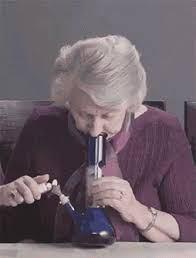
** Not only does childhood stress affect brain wiring, maternal stress does too. Genes provide our blueprints, but “epigenetics” refers to how genes can operate differently depending on external cues. Exceptional stress during pregnancy causes epigenetic effects on fetuses — as if Nature knows that a child coming into a rough environment must be built differently than for a calm world.
Advertisements